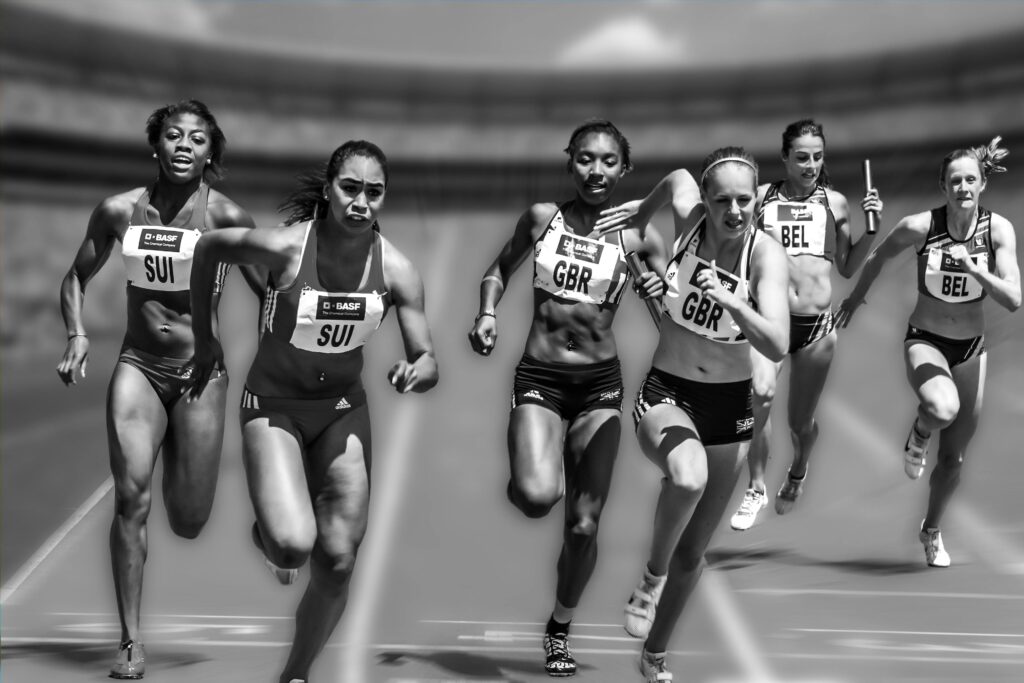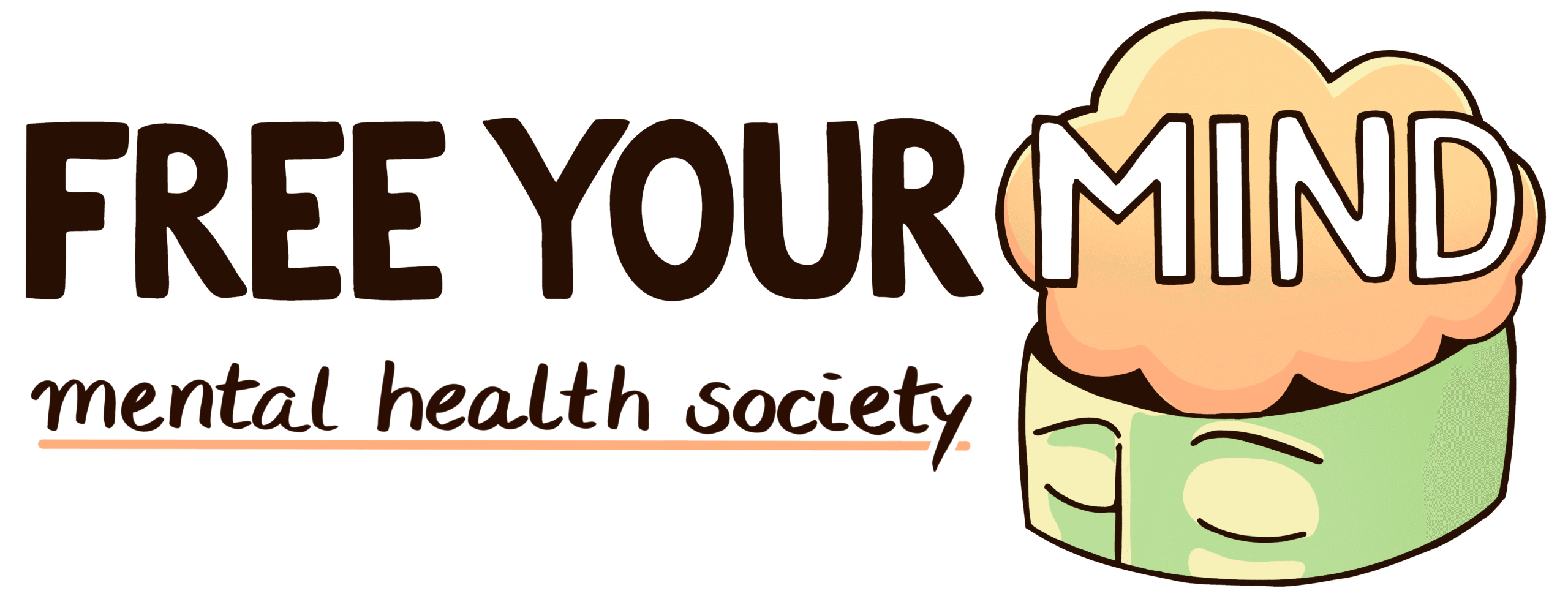Photo by Pixabay
From watching a sports event, or even attending one, you are always amazed by the top performance of these athletes and view them as having great speed, strength, and mental toughness. However, they often hide away the struggles that continue to grow during their intensive training, which involves trying to reach unrealistic expectations set by their coaches and fans. Medical professionals and sport organizations have recognized that elite athletes, particularly in high-pressure sports like track and field, develop challenges with their mental health such as depression, anxiety, and burnout (McLean Hospital, 2024). However, the stigma around mental health remains a serious barrier to their well-being, and by breaking this stigma, it requires open discussions, organizational support, and athlete advocacy — those that are demonstrated by athletes today (Cacciola, 2021).
During the Olympics, most elite track athletes are faced with high expectations, and they must constantly prove themselves to coaches, fans, and sponsors. That means their mindset is focused on perfection in their intensive training. Without meeting these standards, they would self-neglect, lowering their self-worth and affecting their mental well-being (McLean Hospital, 2024). In major events, athletes are typically burnt out from overtraining and minimal recovery time. Identity tied to performance could lead to failure, lowering their overall confidence (McLean Hospital, 2024).

Photo by Pixabay
Athletes who are younger or at the collegiate level are constantly pushed within the barriers of balancing schoolwork, personal relationships, and endorsement from NIL (Name, Image, and Likeness). Stress applies to practices, and conflicts arrive when they are led to burnout from sport activities (McLean Hospital, 2024). The pressure to succeed can especially cause stress and anxiety that most students are not aware of. For example, in my final year, I’m taking Chemistry 12 while handling school and competitive track and field. Practicing with my teammates and coordinating time with school assignments has been a major struggle. However, I realize that completing my academic work during school helps me to be productive and manage my time wisely. Then, coming home after practice is where I relax and follow along with stretches to reduce strains.
Sports culture often places intense pressure on athletes, pushing them to meet high expectations and perform at their best. However, beneath the surface, a significant stigma around mental health remains, affecting the well-being of many athletes (McLean Hospital, 2024). They fear appearing weak, as they don’t want to hear judgments or be sidelined. The ideal mindset is seen as “pushing through pain,” both mentally and physically, which adds more stress and anxiety (McLean Hospital, 2024). Even Nike’s slogan, “Just Do It,” expects you to push yourself ahead of the game. Especially, there’s not much mental health education and nor resources, since many programs prioritize physical training over emotional support (McLean Hospital, 2024). Coaches emphasize training, commitment, and dedication. However, athletes also need to build a stronger and healthier mindset when combating mental health issues. Recent athletes like Simone Biles and Naomi Osaka have helped open conversations about mental health (Olympics.com, 2023), teaching athletes not to hide struggles but seek reliable support.
One of the most important figures to emphasize in track and field is Noah Lyles, a 200m American sprinter who won a bronze medal during the Tokyo 2020 Olympics (Cacciola, 2021). Though receiving his first medal did not change the mental health challenges he faced, it instead made him feel guilty for qualifying without his brother (Cacciola, 2021). It indicated that mental strain goes beyond sport, it also impacts identity and close relationships (Cacciola, 2021). Noah emphasizes that running helped reduce his stress from academic pressure. However, he also resorted to antidepressants and struggled during the pandemic due to limited community support (Cacciola, 2021). In speaking out about his mental health challenges, Noah helped initiate discussions in track and field and encouraged other athletes to prioritize their well-being (Cacciola, 2021).

Photo by Cottonbro Studio
To move forward in creating a safe and positive environment, it’s crucial to destigmatize mental health in track and field by applying supportive systems, promoting awareness, and encouraging a balanced life beyond sports (McLean Hospital, 2024; Kuzma, 2021). Coaches should recognize signs of struggle in athletes and encourage open conversations (McLean Hospital, 2024). Providing access to therapy, health professionals, and stress-relieving strategies helps athletes navigate their journey without feeling alone (McLean Hospital, 2024). Sports organizations should include mental health education in training programs, such as workshops and team meetings to share coping strategies (McLean Hospital, 2024). Highlighting stories like Lyles would help make discussions relatable, so other athletes don’t feel discouraged (Cacciola, 2021). Furthermore, helping athletes develop personal interests outside of sports supports balance and reduces burnout and identity loss (McLean Hospital, 2024).
Overall, elite track athletes face serious mental health challenges that are often overlooked due to stigma (McLean Hospital, 2024). They are seen on the surface as strong heroes, but challenges can obstruct their journey, and it’s important for them to access support from medical professionals (McLean Hospital, 2024). Many, like Noah Lyles, give rise to the topic of mental health awareness, which the sports world must listen to and act on (Cacciola, 2021). News and social media should emphasize topics significant to athletes to raise awareness (Olympics.com, 2023). Lastly, the medical field and sports organizations are working on improvements to address mental health challenges and give athletes a comfortable and resilient space (McLean Hospital, 2024). In the end, creating a safe and supportive space for athletes to speak up is crucial to building a healthier and more understanding environment (McLean Hospital, 2024).
References
Cacciola, S. (2021, August 4). After earning a bronze medal, Noah Lyles opens up about mental health and the challenges of the past year. The New York Times. https://www.nytimes.com/2021/08/04/sports/olympics/noah-lyles-bronze-mental-health.html
Kuzma, C. (2021, July 28). With a Spotlight on Athletes’ Mental Health, Here’s How Track and Field’s Best Cope. Runner’s World. https://www.runnersworld.com/news/a37131594/mental-health-olympic-athletes/
McLean Hospital. (2024, August 13). Athlete Mental Health: What You Need To Know. https://www.mcleanhospital.org/essential/athlete-mh
Olympics.com. (2023, October 10). World Mental Health Day 2023: From Simone Biles to Noah Lyles, Olympic stars reflect on the importance of taking care of the mind. https://www.olympics.com/en/news/world-mental-health-day-2023-olympians-advice
Olympics. (2024, August 4). Noah Lyles takes gold! Men’s 100m Final! | #Paris2024 highlights [Video]. Youtube. https://www.youtube.com/watch?si=fD0cr6_RMnLZGi43&v=gW0y6K6c6Jw&feature=youtu.be
Note: The Free Your Mind Mental Health Society is an independent youth-led organization. The contents of this blog are not intended to be a substitute for professional medical advice, diagnosis, or treatment. Always seek the advice of your physician or another qualified health provider with any questions you may have regarding a medical condition. In the event of a medical emergency, please call your doctor or 911 or other local emergency numbers immediately.

